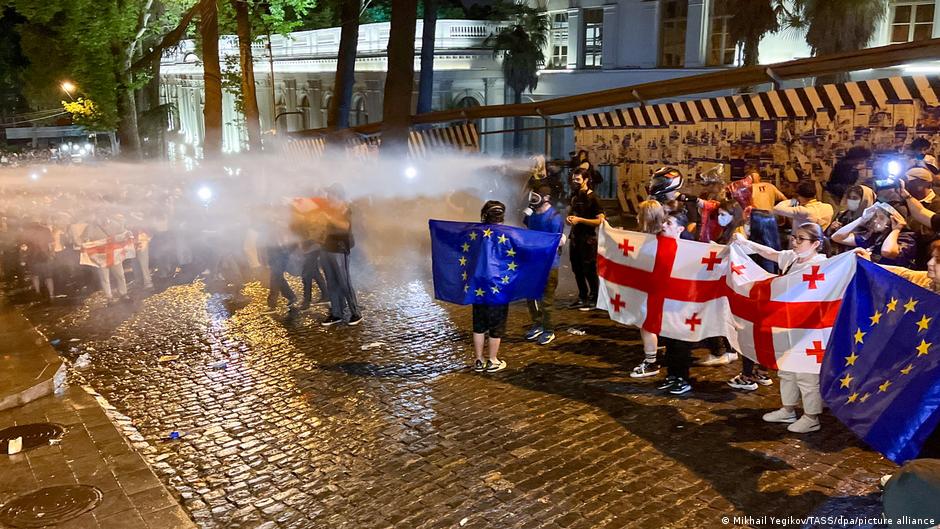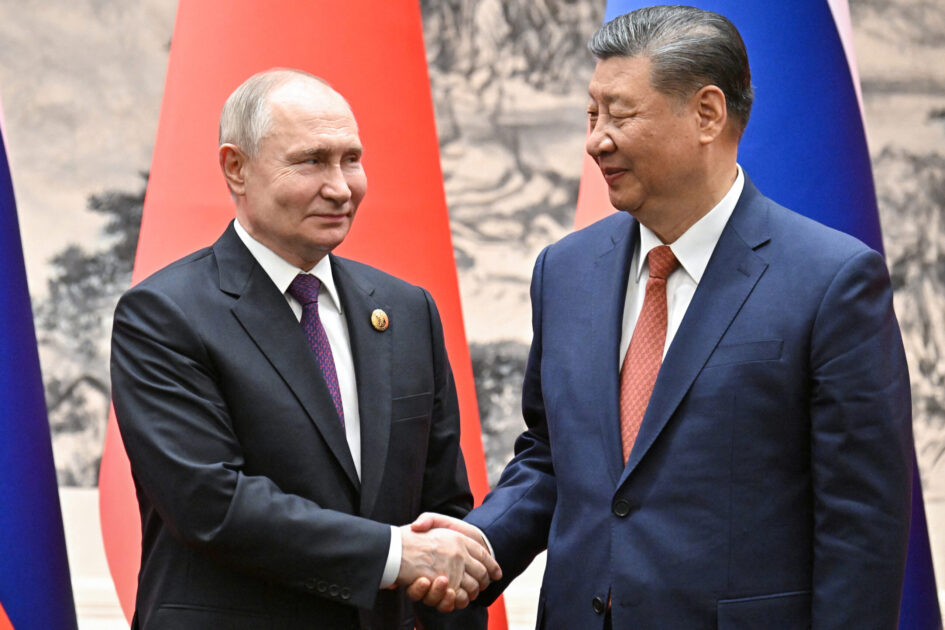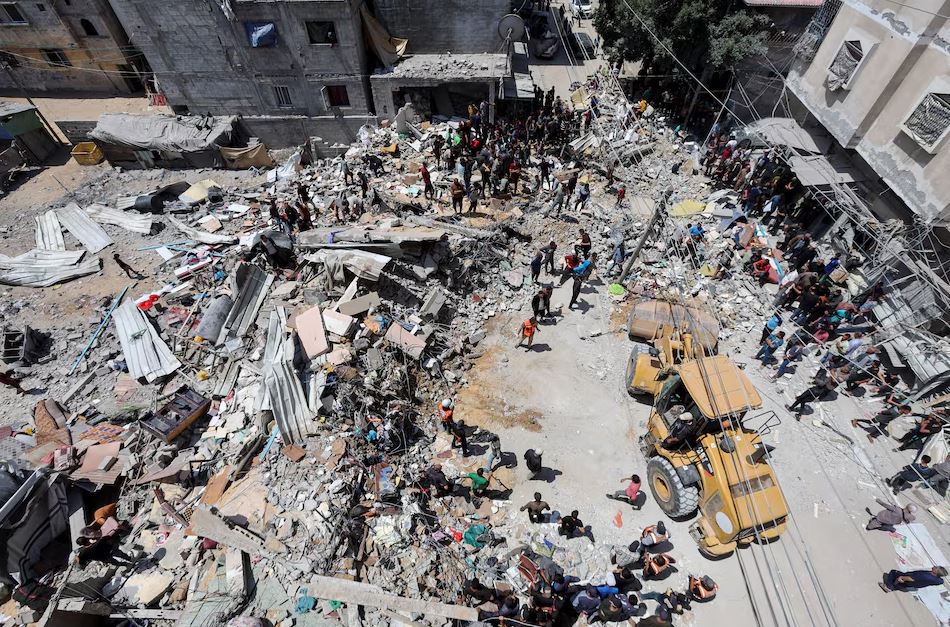- Reuters
- 44 Minutes ago
In controversial ‘Russian law,’ Georgians see threat to civil society

Rusudan Djakeli, 30, has hardly spent an evening at home recently. She has been out on the streets of the Georgian capital Tbilisi almost every evening, mostly protesting in front of the parliament.
At times, there have been tens of thousands of people in front of the elaborate building on Rustaveli Avenue, demonstrating against a draft law the government is currently trying to push through.
“I’m here to defend my country,” says Djakeli, who believes her homeland is in great danger. The bill stipulates that non-governmental organizations and media outlets that receive more than 20% of their funding from abroad will have to register as “pursuing the interests of a foreign power.”
Many protestors see parallels between the proposed law and what has happened in its northern neighbor Russia. Demonstrators hold banners reading, “No to the Russian law.””Russia is attacking us,” Djakeli says, “not directly, but indirectly.”
The Georgian legislation has already passed two readings in parliament. It would need to pass a third reading and be signed by the president for it to become law.
Under Kremlin influence?
Georgia’s government has rejected the criticism. But many protesters believe that the country’s ruling party, Georgian Dream, is under the influence of the Kremlin. Earlier this week, the party’s founder and honorary chairman, Bidzina Ivanishvili, who made his fortune in Russia in the 1990s, endorsed a conspiracy theory that is reminiscent of Putin’s rhetoric. He spoke of a “global party of war” that has “a decisive influence on NATO and the European Union.”
Many protesters argue that the law the Georgian government wants to introduce is akin to the “foreign agents” legislation that Russian President Vladimir Putin’s government put in place in 2012.
“They want to adapt our legal system according to Moscow’s. This bill is a copy of the Russian law,” says Djakeli.
The Russian law of 2012 stipulated that organizations that received money from abroad had to designate themselves as “foreign agents.”
“The Russian law was stricter, but both laws have a similar, defamatory character,” says Marcel Röthig, the director of the Friedrich Ebert Foundation’s South Caucasus Regional Office. He rejects the government’s argument that the new law will create more transparency: “An environmental organization that campaigns for nature conservation and receives a grant from a foreign partner will suddenly be assumed to represent foreign interests. Or a free media outlet that does not represent anyone’s interests will suddenly be labeled as representing the interests of foreign powers.”
The media landscape in Georgia is already divided into broadcasters that are close to the government and receive taxpayers’ money on the one hand, and independent, often cash-strapped outlets on the other. Media outlets that provide independent reporting generally receive little income from advertising and are often dependent on funds from the EU or the US, for example. Many critical outlets would probably have to shut down without this financial support.
Targeting of LGBTQ+ community?
Many of those who have gone out onto the street to demonstrate are also worried that NGOs campaigning for minority rights could be discredited, particularly those who defend LGBTQ+ rights. Georgian Dream lawmakers have spoken about protecting young people from “LGBT propaganda”on multiple occasions.
Protesters fear that this law is just a first step, and that the government will continue to tighten the measures, as the Kremlin has done. Moscow has banned numerous NGOs, including the human rights organization Memorial.
Read more: Palestinian Embassy seeks temporary status for Gazans who entered Egypt during war
“We saw this in Russia. These laws were the beginning of the dismantling of Russian civil society,” says Röthig. “They poison the atmosphere because people involved in civil society initiatives might be afraid of being stigmatized.”
One major difference between Russia of 2012 and Georgia today is that the latter has the prospect of joining the EU. It was granted candidate status last year and according to the polls, 80% of the population wants to join the bloc. The legislation would likely stop any concrete negotiations advancing the republic’s membership in the EU. This is one of the reasons Rusudan Djakeli plans to go out onto the streets until the bill has been withdrawn.




